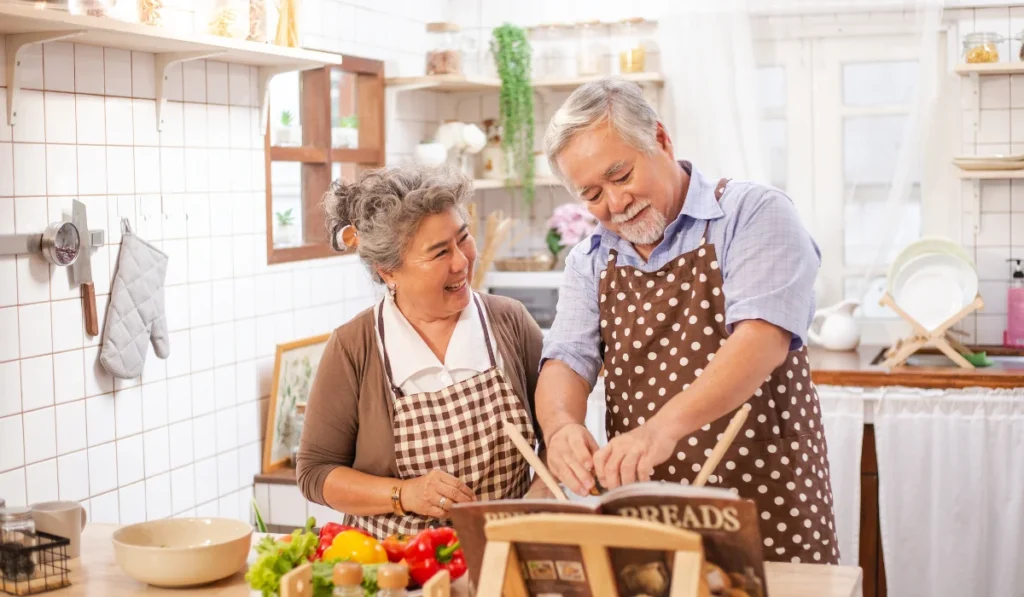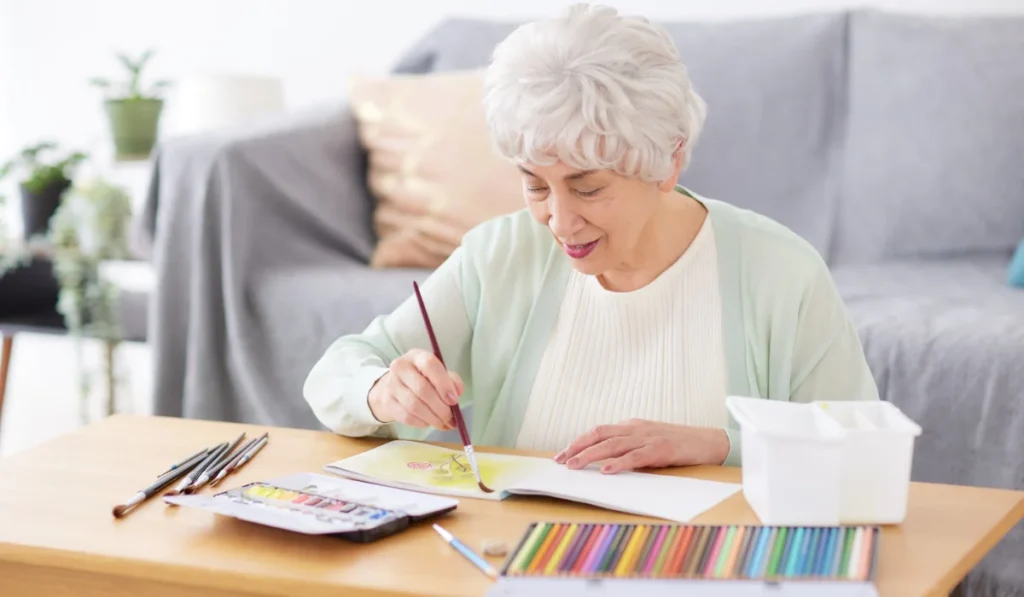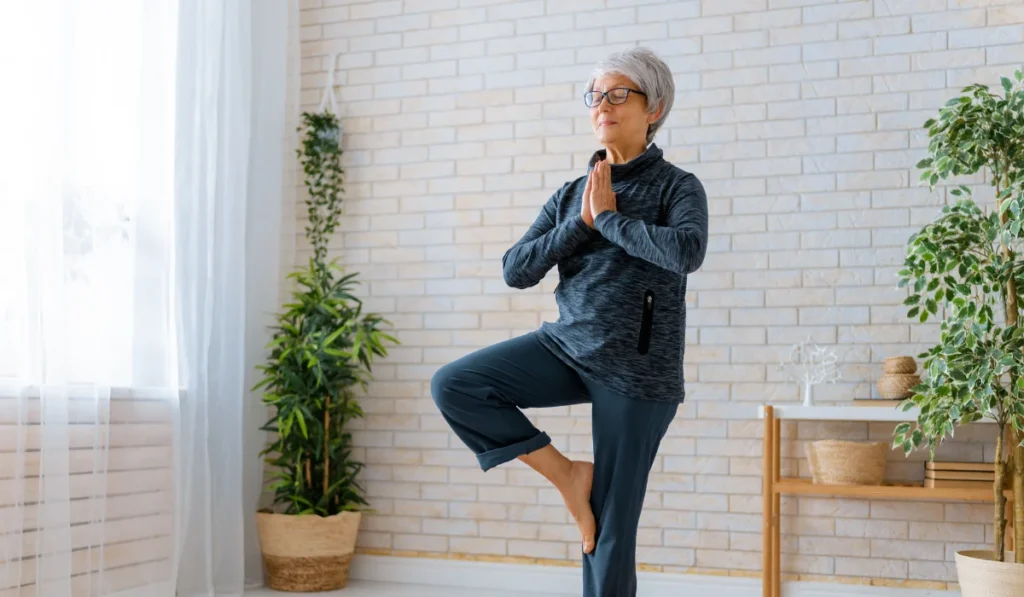Staying mentally sharp is important for older adults. Activities that challenge the brain can help boost memory, improve focus, and support brain health. Whether it’s solving puzzles, learning new skills, or staying active, there are many ways to keep the mind engaged and healthy.
In this article, we’ll explore nine fun and stimulating brain exercises. These ideas are designed to promote mental health, encourage social interaction, and improve cognitive function. So let’s dive in.
Key Takeaways
- Play brain games like Sudoku, memory games, and board games to improve problem-solving skills and strengthen memory.
- Explore creative or relaxing hobbies such as watercolor painting, cooking new recipes, or reading to stay focused and improve quality of life.
- Try apps like BrainHQ or Lumosity for quick and engaging exercises that boost cognitive skills.
- Practice activities like Yoga, Tai Chi, or meditation to improve mental well-being, reduce stress, and support brain health.
1. Sudoku

Sudoku is a classic brain game that strengthens problem-solving skills and keeps the mind sharp. By encouraging logical thinking, it helps improve focus and memory. Getting started is simple. Pick up a Sudoku book or find free puzzles online.
For older adults, Sudoku provides an enjoyable and stress-free way to stay mentally active. Plus, the act of completing a puzzle can bring a rewarding sense of achievement, which is helpful for seniors who may feel less in control of their lives and bodies.
2. Cook a New Recipe

Cooking is more than just making a meal. It’s also a great way to keep the brain active. Following a recipe involves reading, planning, and measuring, all of which engage cognition. It’s also an opportunity to try a new hobby that’s both creative and rewarding.
Trying new recipes can also bring variety to your routine and introduce healthy eating habits that support brain health. Even better, cooking for or with loved ones turns the process into a shared experience, combining mental stimulation with meaningful social time and a healthy diet.
3. BrainHQ or Lumosity

Brain training apps like BrainHQ or Lumosity offer a fun and convenient way to exercise the mind. These apps include a variety of games designed to improve game-specific memory, focus, and problem-solving skills. They are tailored to challenge users at different levels, making them suitable for older adults.
Using these apps makes brain exercises easy to include in daily routines. Although the science on long-term health benefits is still evolving, consistent use may help you feel more confident in your cognitive abilities and keep your mind active.
4. Read a Book

Reading is a simple and effective way to stay mentally engaged. Whether it’s a novel, memoir, or nonfiction, reading improves focus, comprehension, and critical thinking while expanding vocabulary.
For older adults, reading helps prevent cognitive decline and supports long-term brain health. Joining a book club adds a social activity, while libraries and eBooks make it easy to explore a range of topics. Regular reading also provides a relaxing escape into new ideas.
5. Watercolor

Watercolor painting is a calming and creative way to engage the brain. It encourages thinking about colors, shapes, and patterns while improving fine motor skills and dexterity. This artistic activity can help older adults focus their minds and reduce stress.
Whether following tutorials or painting freely, watercolor promotes mental well-being and offers a gentle way to stimulate brain cells. If you like watercoloring, you may want to consider these other methods of improving mental well-being as well.
6. Play Memory Games

Memory games are a fun and effective way to improve recall and boost cognitive function. These games often involve matching card games, remembering sequences, or recalling details, which help sharpen the mind and enhance attention to detail.
For example, “Concentration” challenges players to find matching pairs of cards, engaging short-term memory and focus. Other games, like crossword puzzles or word searches, provide similar benefits. Seniors can play alone, with family, or online. Apps and websites often have free versions suitable for all skill levels.
For a real challenge in memory, consider learning a musical instrument or a new language. These are great for socializing and enrichment as well.
7. Yoga or Tai Chi

Yoga and Tai Chi combine physical activity with mental focus, making them excellent for overall wellness. These practices improve balance, flexibility, and coordination while reducing stress and promoting relaxation. They also encourage mindfulness and support general health, which can help reduce the risk of Alzheimer’s disease.
Older adults can join local classes or follow guided videos online. These activities are gentle and adaptable, making them accessible to most people. Along with improving brain function, regular practice supports physical health and emotional control.
8. Meditate

Meditation is a powerful tool for improving mental clarity and reducing stress. Regular meditation helps seniors enhance focus, improve memory, and promote emotional well-being. It also supports brain health by encouraging mindfulness.
Getting started with meditation is simple. Seniors can use guided meditation apps, listen to recordings, or practice silent breathing exercises. Even a few minutes daily can help lower stress, boost cognition, and support mental well-being. Home care services can help you make this a regular practice.
9. Play Board Games

Board games offer a fun and interactive way to keep the mind sharp while fostering social connections. Games like Scrabble, chess, and strategy-based options challenge problem-solving skills, memory, and logical thinking. Word games and jigsaw puzzles are also excellent alternatives for mental stimulation.
For caregivers, playing board games and doing other activities with seniors creates opportunities for connection and shared joy. Many games are easy to learn and enjoyable at all skill levels.
Regular play improves cognitive abilities and can help manage age-related changes, making it a valuable addition to home care routines.